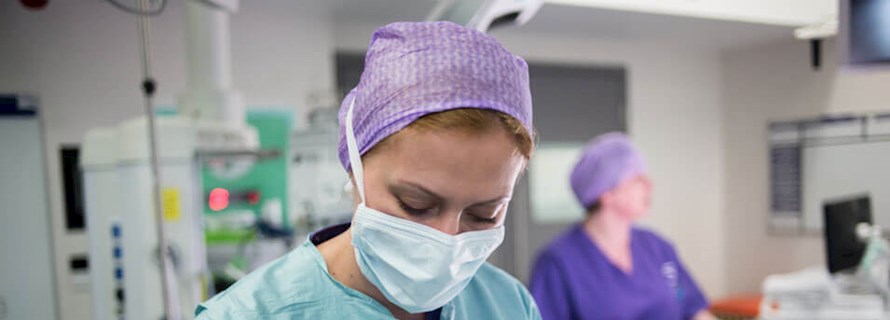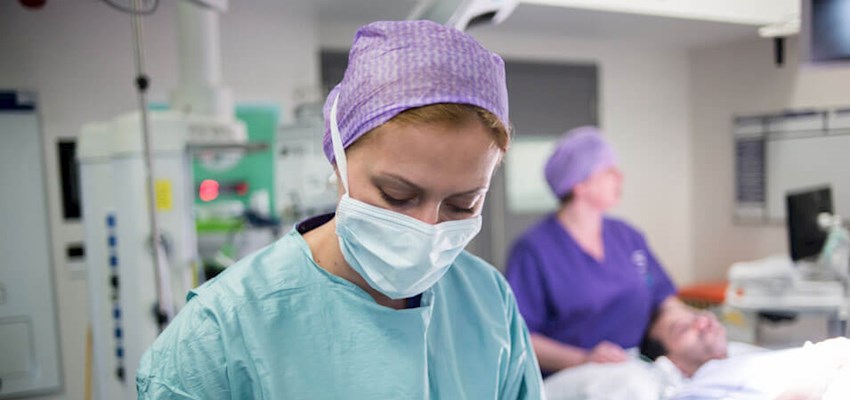Cystoplasty
A surgical procedure to enlarge or partially or completely replace your bladder if it is not functioning normally
About
Need to know
-
What happens during your procedure? icon plus
There are two types of cystoplasty. Your consultant will explain which type they will perform on you.
- 'Clam' cystoplasty. Your bladder is opened up across the top so it forms two halves joined at the bottom end, like a clam shell. The prepared bowel is then attached to the opened bladder like a gusset.
- Substitution cystoplasty. The damaged bladder is removed, leaving the bladder neck that contains the sphincter muscle which controls continence and the passage of urine. A completely new bladder is then formed from part of your bowel, which has been prepared. This is then attached to the bladder neck to form the new (neo) bladder.
-
How to prepare icon plus
Your consultant will perform various investigations to ensure you are fit for the surgery. These include:
- blood tests
- urine tests
- X-rays
- Electrocardiogram (ECG) to check your heart rate and rhythm
- MRSA screening to test for infection
Sometimes a special bowel preparation is required, which requires you to stay in hospital on the night before your procedure so it can be administered. You will also need to fast and abstain from drinking for six hours prior to surgery.
-
After your procedure icon plus
You will be sent to the recovery area and closely monitored until you are stable. You will be given fluids through a drip. You can start eating again once you have passed wind, as this indicates your bowels are moving.
Your new bladder will be drained by tubes. This makes sure it is empty at all times and helps healing. You will have a number of other tubes connected to your body to drain fluids. You will be given painkillers to combat any pain you experience.
A physiotherapist will show you some techniques to help mobilise your body as soon as possible. The surgery takes between two and five hours, depending on your type of procedure.
Our urological consultants
Our consultants work closely with nurses and physiotherapists to ensure you are supported throughout your recovery.




Our locations
From complex urological surgery to diagnostic tests and procedures, we provide exceptional urology care across our network of hospitals, outpatient centres and specialist clinics.
Book an appointment
Our team can help with any enquiries or you can make an appointment with one of our experienced consultants.
Call us today
020 7079 4344